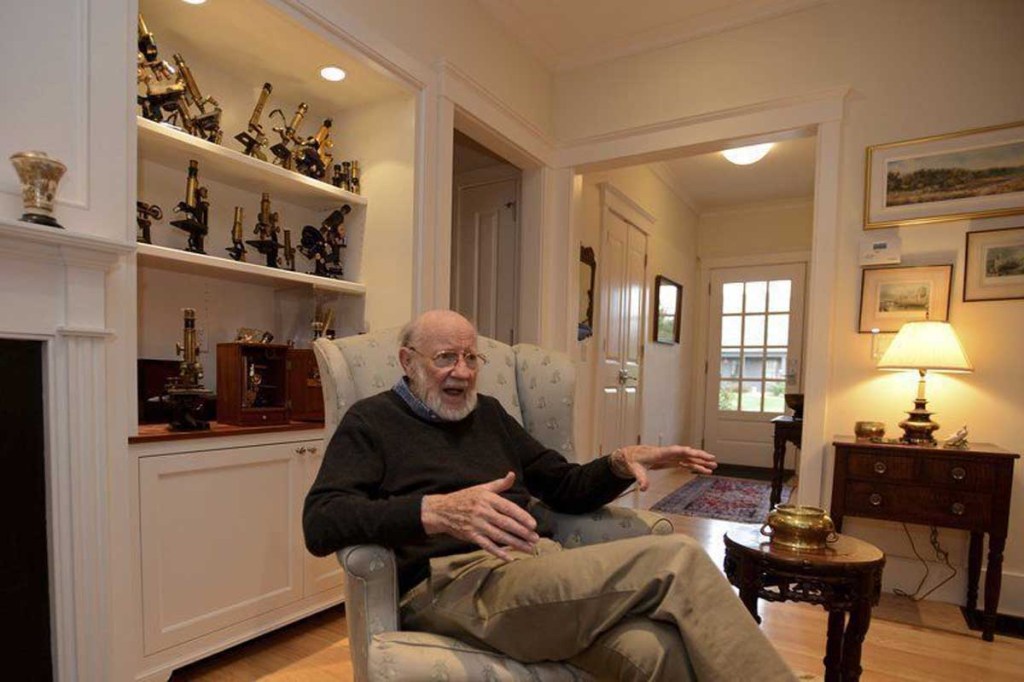Nobel surprise: Retired U.S. scientist ‘shocked’ by honor
Published 11:00 am Tuesday, October 6, 2015

- North Andover resident William Campbell speaks about his parasite research in his home on Monday after being announced as one of three researchers to win the 2015 Nobel Prize for Medicine for developing therapies to treat parasitic diseases.
NORTH ANDOVER, Mass. — When William C. Campbell was awakened by a Reuters news agency reporter Monday morning and told he had won the Nobel Prize in medicine, he didn’t believe it.
“I thought he was kidding,” said Campbell. “I was absolutely shocked.”
Trending
A quick Internet search confirmed Campbell, 85, had won the prestigious honor – along with two other scientists – for discovering drug therapies that the Nobel Committee said “revolutionized the treatment of some of the most devastating parasitic diseases,” saving lives throughout the world.
Campbell’s co-winners were Satoshi Omura of Japan and Tu Youyou of China. Each will receive a gold medallion featuring the profile of Alfred Nobel, a Swedish scientist who invented dynamite and for whom Nobel Prizes have been awarded since 1901.
Campbell and Omura will share one-half of the $960,000 that goes with the Nobel Prize, and Youyou will receive the other half. She used traditional medicine in discovering Artemisinin, a drug used to combat malaria. Campbell and Omura contributed to earlier breakthroughs in anti-parasitic dugs.
A native of Ramelton in County Donegal, Ireland, Campbell worked for more than 30 years at the Merck Institute for Therapeutic Research in New Jersey and later became a research expert at the Research Institute for Scientists Emeriti. He graduated with a bachelor’s degree from Trinity College in Dublin, and obtained master’s and doctorate degrees in zoology and veterinary science . He moved to North Andover, Massachusetts, a Boston suburb, five years ago to be near his daughter and her family.
Campbell said he did not achieve the award alone, and credited the team he worked with at Merck Laboratories in Rahway, New Jersey, for their involvement. He was awarded the prize for his research at Merck in the 1970s.
“This sort of thing is not done by two or three, but by industry, by a whole group of people,” he said during an interview at his home in a retirement community. “I was thrilled because I was part of the team that really earned this prize, and I think of it as the team getting the prize.”
Trending
Campbell said collaboration and cooperation between different scientific disciplines is, simply, a way of life for those in the industry.
“You’re in this together, you have the same goal when you’re all working,” he said. “It’s just a wonderful experience.”
Campbell’s interest in parasitic worms dates back to his teenage years.
“I was fascinated to discover that it was possible to treat animals — sheep, cattle, so on — to get rid of parasites, parasitic worms,” he said. “And that didn’t make me suddenly decide to take a particular direction in life. But at Trinity College I met a professor whose work was with parasites, so that all came together.”
Caitlin Walsh is a reporter with The Eagle-Tribune in North Andover, Mass.





